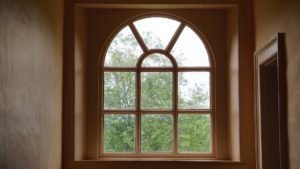Why Your Home Windows Crack and How to Prevent It

Your home windows serve several purposes. They provide natural lighting for the home, give beauty to your space, provide egress in case of emergency, and offer ventilation for every room.
However, when your windows crack, they begin to fail at most of their primary purposes; they no longer look beautiful and they leak precious heat and cool air, ruining the efficient climate control of your home. Windows can crack for several reasons, and when you know the reason, you can sometimes prevent the problem from happening again.
Learn some of the reasons why home windows break unexpectedly and what you can do to fix the problem.
Cracks From Stress
Stress cracks are one of the most common causes of home window glass damage. Have you ever baked something in a glass pan, only to have the pan shatter or break when you put it in your cool kitchen sink? This fracturing occurs because of the drastic temperature changes through the glass, which stresses the structure of the glass enough to cause a break.
The same process is what causes cracks or occasional shattering of a window. The window heats or cools unevenly, with part of the window expanding and part of the window contracting. The result is stress on the structure of the glass. With enough stress, you will see a crack in the window, usually running horizontally or at a slight diagonal.
These types of cracks are most common for windows that are partially shaded. You might have partial shade from a large tree, from a shed or exterior patio, or even a neighbor’s home. If the window is constantly only partially exposed to light, the window will heat and cool unevenly.
You can sometimes prevent stress cracks from occurring by removing sources of partial shade, such as a tree or bush. However, outbuildings and certainly neighboring homes cannot be removed, so those windows will always be under some risk of stress cracks.
Stress cracks begin very small, with just a centimeter or two of crack beginning at the side of the window. Very rarely will the entire window crack at once unless the temperature change is sudden and severe (since shade creeps up slowly, sudden and severe changes are not likely).
Contact a glass company to repair a small crack and prevent it from getting bigger. Larger cracks necessitate complete glass or window replacement, depending on your window type.
When you replace the glass or the window, you might choose thicker tempered glass or glass that is better insulated (double- or triple-pane glass with inert gas filling), which helps to protect against stress cracks.
Cracks From Pressure
Window cracks also occur from pressure. Pressure cracks occur when the window is installed too high or too low in elevation. These cracks usually have curves, and they occur more suddenly than stress cracks.
High-elevation locations like Utah can lead to pressure cracks if the windows are not designed for the area. For example, windows filled with argon at lower elevations will crack when installed at a higher elevation because of decreased air pressure. The argon expands in the window, shattering and cracking the glass.
Pressure cracks can also occur during storms or sudden weather changes that cause drastic atmospheric pressure changes in a short period of time. Thunderstorms and snow storms can cause pressure window cracks.
Also, pressure cracks can happen if a window is not installed properly. The pressure of the surrounding frame can crack the glass if it is too tight in the wall. The wood surrounds expand and contract in the heat, increasing the force on the window frame, which in turn places more force on the glass. Glass is more brittle, so it will crack under the strain.
You can avoid some pressure cracks by having a professional install your windows, following the manufacturer guidelines exactly. When choosing new windows, make sure they are rated for the elevation of your area.
Cracks From Impact
Finally, you can have cracks from impact. You can, of course, have a broken window from a thrown rock or a baseball, and you will immediately know the cause of the damage. But some impact cracks go unnoticed and unrepaired at first. When your lawnmower throws a small pebble, for instance, it might not crack the window but just cause a chip.
The chip weakens the glass, and the glass will then expand and contract with temperature changes. The weak point will begin to radiate cracks, which will spread through the window over time.
Inspect your windows each season for chips, and have the chips repaired as soon as possible. Chips can be repaired easily and cheaply, but once cracks begin to spread, the entire window pane or the entire window unit must be replaced, which is much more costly.
For more information on window glass and replacement, contact us at Central Glass Company.

